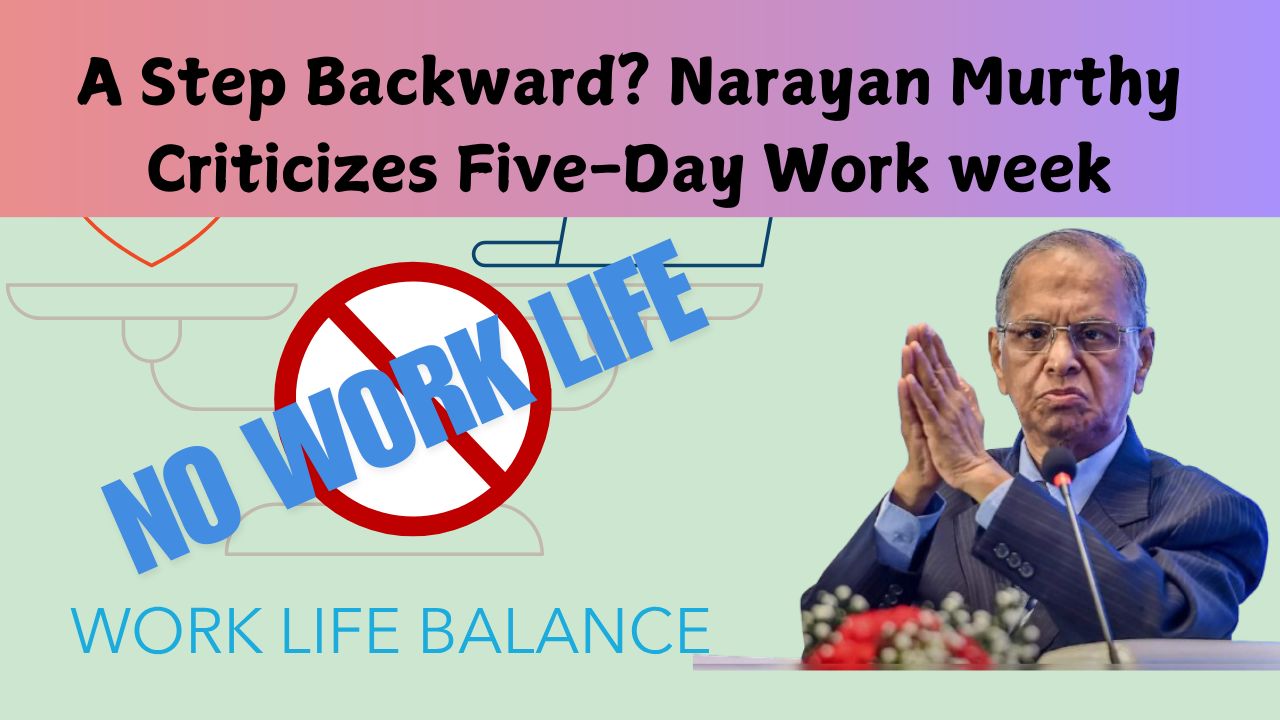
Narayan Murthy on Work Ethic and India’s Workweek: A Call for Sacrifice
Narayan Murthy, the iconic co-founder of Infosys, has always been a figure synonymous with hard work, discipline, and vision. Recently, his candid remarks about India’s shift from a six-day workweek to a five-day schedule have sparked widespread discussions across industries and social platforms. His views, rooted in his personal experiences and philosophy, have raised critical questions about productivity, sacrifice, and modern work culture.
Disappointment Over the Five-Day Workweek
Murthy did not mince words when he expressed his dissatisfaction with India’s adoption of a five-day workweek. He believes that this shift may hinder the country’s potential to achieve greater economic progress and global competitiveness. According to Murthy, the path to national growth demands a higher level of commitment and effort from the workforce, a sentiment he feels is not fully supported by the current workweek structure.
“I Do Not Believe in Work-Life Balance”
In a bold statement, Murthy revealed that he does not subscribe to the idea of work-life balance. His perspective challenges contemporary norms, where maintaining a balance between professional and personal life is often seen as essential for overall well-being. Murthy’s philosophy underscores the belief that achieving extraordinary results requires extraordinary sacrifices.
A Call for Sacrifice Over Relaxation
For Murthy, the idea of “relaxation” appears secondary to the need for sacrifice. He urges Indians to embrace a culture of hard work and dedication, even if it means setting aside personal leisure. “Indians require sacrifice, not relaxation,” he stated, reinforcing his belief that the country’s progress depends on its people’s willingness to go the extra mile.
Leading by Example: Murthy’s Intense Work Schedule
Murthy’s personal work ethic exemplifies his philosophy. Reflecting on his own career, he shared that he used to reach the office at 6:30 AM and leave around 8:40 PM, maintaining a grueling 14-hour workday, six and a half days a week. This level of dedication, he believes, played a significant role in building Infosys into the global powerhouse it is today.
Reactions: A Divided Opinion
Murthy’s statements have elicited mixed reactions. Admirers laud his unwavering commitment and the results it has produced, viewing his remarks as a rallying cry for a stronger work ethic. Critics, however, argue that such an approach overlooks the importance of mental health, family time, and the evolving expectations of today’s workforce.
A Timely Debate
Murthy’s comments come at a time when work cultures worldwide are undergoing significant transformations. The pandemic reshaped priorities for many, with flexibility and well-being gaining prominence. In this context, his traditional views offer a stark contrast, inviting both admiration and critique.
Conclusion
Narayan Murthy’s perspectives remind us of the values that built some of India’s greatest success stories. While his call for sacrifice may resonate with some, it also prompts an important dialogue about balancing ambition with well-being in a rapidly changing world. Whether one agrees or disagrees with his views, they undeniably shed light on the enduring tension between traditional work ethics and modern aspirations.
Also Read : What is ChatGPT?
Follow Us on Facebook : https://www.facebook.com/CyberIntroDTU/